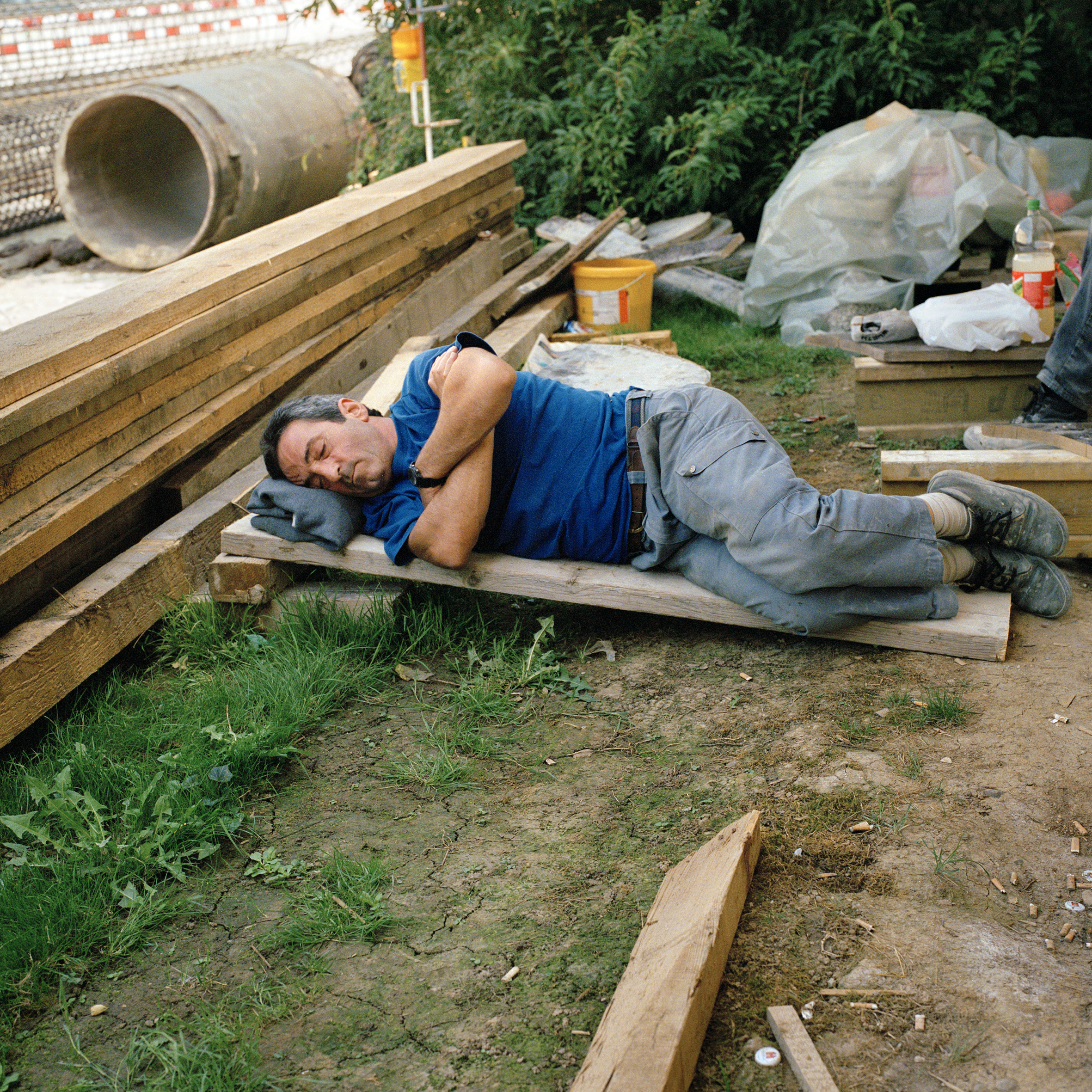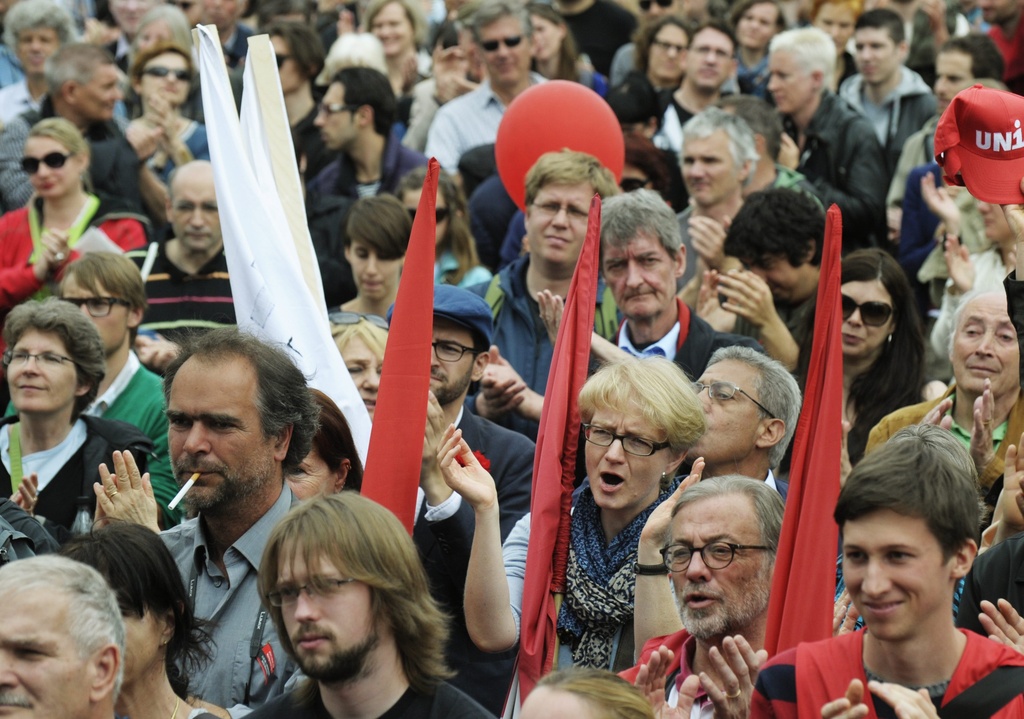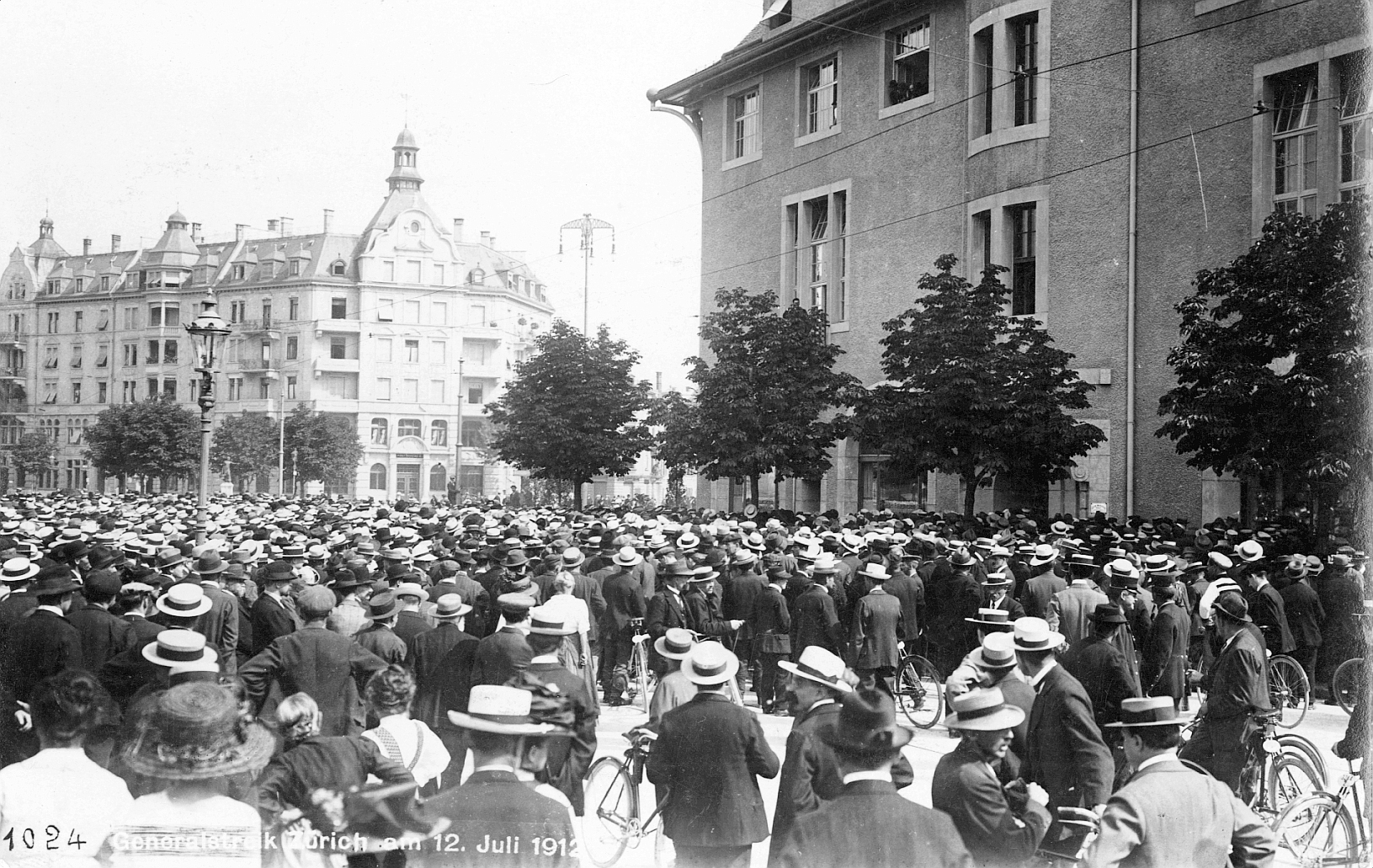How watch movements spurred industrial peace

The watchmaking industry changed the landscape of social dialogue in Switzerland when unions and managers drew up a deal in 1937 that led to widespread industrial peace. Since then there have been major "social gains", a union expert says.
Jean-Claude Rennwald, a former parliamentarian and union activist from canton Jura, tells swissinfo.ch that various crises in watchmaking have pushed the employers’ organisations and trade unions to come up with acceptable compromises for both sides.
As a trade union secretary, Rennwald successfully negotiated four collective bargaining agreements (CBAs). Such deals establish the working conditions in a given sector and govern the relationship between social partners.
Rennwald has recently co-authored a book with the historian Jean Steinmaurer retracing the past 75 years of social partnership in the watchmaking industry.
swissinfo.ch: How did the first collective agreement, which was struck between employers’ organisations and trade unions in the watchmaking industry, mark a turning point in the history of labour relations in Switzerland?
Jean-Claude Rennwald: On May 15, 1937, unionists and employers agreed to put down their respective weapons of strikes and lockouts. Since then, we can attest to 75 years of regular and close dialogue between these trade unions and employers’ organisations. In fact, the watchmaking industry has one of the most comprehensive CBAs in Switzerland today.
However, we have to remember that this CBA did not appear out of thin air. It was the result of a bitter strike in Biel’s watch dial industry. Without their struggles and strong mobilisation, this famous CBA would probably have never been reached. The confrontation was necessary, as was the federal government’s intervention, which pushed the representatives of both parties to sit around the negotiating table and come to an agreement.
swissinfo.ch: Some unionists say that the resulting industrial peace has above all severed employers’ interests over the past 75 years. Would you say that they are wrong?
J-C.R.: The situation is undoubtedly different depending on the economic branch and I understand that this peace is more fragile in certain sectors. But every time the CBA has been renewed in the watchmaking industry, important social gains have been made. The various crises that have affected this industry pushed the employers’ organisations and trade unions to come up with acceptable compromises for both sides.
There are several reasons that explain the specificity of the watchmaking industry: the level of union membership is higher compared with other sectors and most of the employers are from French-speaking parts of Switzerland, who are a bit more open to social dialogue compared to their German-speaking counterparts.
Furthermore, the watchmaking industry produces a consumer product where the threat of a strike carries more weight in terms of the impact it would have on a company’s image compared with other investment goods.
swissinfo.ch: Are salaries in the watchmaking industry fair considering the level of success of this sector today? In other words, is there a real redistribution of profits between employers and employees?
J-C.R.: Overall, redistribution exists. And you have to also look at other advantages; such as early retirement options and 16-week maternity leave at full pay. But I admit that this is a weak point in the agreement. Salary minimums are not high enough yet, especially in the regions of Valais, Tessin and Jura. Trade unionists have been fighting for years over these points and are trying to reach the best outcome possible.
swissinfo.ch: It is estimated that only one in two employees is subject to a CBA in Switzerland, which is much lower compared with certain neighbouring countries. So, can this really been considered a successful model?
J-C.R.: We can say that the CBAs that exist are a success, even if there are improvements that need to be made. The fact that 50 per cent of employees do not benefit from a CBA demonstrates that there is still a lot of work that needs to be done in terms of recruitment, notably in the service sector and in new technologies, which do not have the same tradition as the watchmaking, machine tools or construction industries.
swissinfo.ch: Does the so-called “Swiss exception” in terms of social partnership and industrial peace really exist?
J-C.R.: I think so. We behave differently than in France or in other Latin countries, which could not even imagine negotiating without striking or planning other industrial action. On the other hand, the Swiss approach is similar to that of Nordic countries, with one major difference: Their system of tripartite negotiations includes, not only employers and trade unions, but also the government. This is not the case in Switzerland.
swissinfo.ch: Labour conflicts today increasingly pit trade unions against multinational corporations that do not have their centre of decision-making in Switzerland or are managed by foreigners (eg. Swissmetal, Merck-Serono, and Lonza). Does this new dynamic put industrial peace in peril?
J-C.R.: The situation that you are describing is not so much about the colour of an employer’s passport, but a certain social, political and economic culture. Although the traditional boss figure was paternalistic, there was a certain openness to social dialogue and this dynamic is disappearing. It’s a situation that is advantageous to managers who live by the law of maximum profits. Of course, this is an important change. Even if trade unions exist internationally, much progress needs to be made in order to have a fair fight at the global level.
The collective bargaining agreement (CBA) is a contract signed by workers and employers or by their representative organisations.
This agreement establishes the working conditions in a given sector and governs the relationship between the social partners.
A CBA contains certain normative provisions, in particular regarding wages and working time, as well as contractual provisions concerning the rights and obligations of the two partners, for example, the respect of industrial peace.
In reality, only one in two employees in Switzerland is subject to a CBA. In comparison, this proportion is two in three in Germany, four in five in Italy, and almost all workers in Austria. The other half of workers in Switzerland rely exclusively on Swiss Labour Law, which is less developed than in the majority of other European countries.
In 1936, in the midst of economic crisis, the federal government devalued the Swiss franc by 30% and authorised the economy minister to intervene in collective disputes concerning pay.
May 15, 1937 marks the signature of the first CBA, which led to industrial peace between the Swiss Federation of Metalworkers and Watchmakers and the employers’ organisations, putting an end to a two-month long strike.
The contracting parties agreed to apply a regime of absolute social peace whereby the employers promised to abstain from lockouts, or the closing of a place of work, and the employees promised to abstain from strikes.
A similar agreement was signed on July 19, 1937 in the metalworking industry between the employers’ associations and the trade unions.
In 1941, a federal decree made the CBA compulsory in other industrial sectors.
Adopted by the people in 1999, the new federal constitution included the right to strike as a fundamental right for the first time.
In 2012, more than 70% of companies and more than 85% of active workers in the watchmaking and microtechnology industries are subject to a CBA.
(Translated from French by Rachel Marusak Hermann)

In compliance with the JTI standards
More: SWI swissinfo.ch certified by the Journalism Trust Initiative













You can find an overview of ongoing debates with our journalists here . Please join us!
If you want to start a conversation about a topic raised in this article or want to report factual errors, email us at english@swissinfo.ch.